

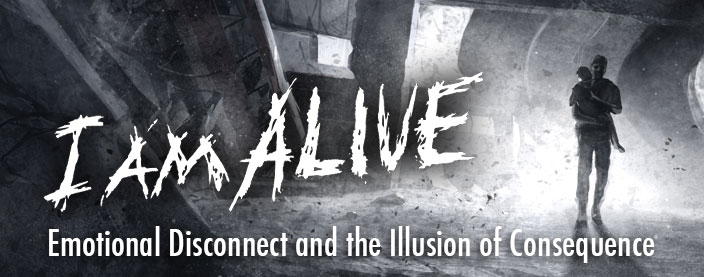
On a wet and windy weekend just gone, I found myself in one of those rare spells that left me in-between reviews and without much else to do. Of course as any gamer knows, the only logical resort to being at a loose end on a rainy day is to delve into your ever-growing pile of shame. In this particular instance I landed on Ubisoft’s survival simulator, I Am Alive, which I picked up in an XBLA sale last year and never got around to looking at. For those that haven’t played the game, it follows the struggle of an unnamed protagonist as you guide him through his home city of Haventon, searching for his family in the aftermath of a cataclysmic natural disaster.
The game itself is well known for splitting opinion, but a quick web search will show you that there are just as many people willing to forgive its undeniable flaws as there are folks that aren’t. As I always do, I went into I Am Alive with an open mind and found a game that I couldn’t help but admire in many respects, as an unbearably tense atmosphere and believable world counterbalanced the ropey mechanics and a story that trips over itself from around a third of the way in.
It was easily the protagonist’s story that left me the coldest about I Am Alive, though; I never reached any major connection to him, I couldn’t even care about the search for his wife and child, he was that blank and unsympathetic. For a good while, it was instead the side-stories that rescued any kind of narrative incentive for me; seeing how the now-vagrant souls of Haventon were struggling against not only an unforgiving environment, but also the viciousness of their own kind.
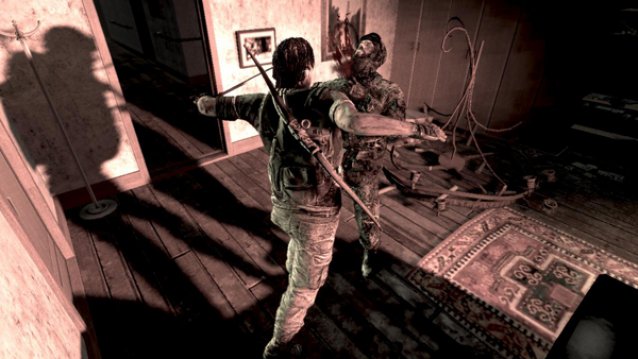
With this, you’re presented the chance to play the Good Samaritan throughout as many people you encounter in this world require your help. They may be badly injured or in desperate need of food, and should you have what they need in your inventory, you can offer it up to help them in exchange for a checkpoint retry.
In these situations, the game tries to pull so very hard at your heartstrings, to get you to sympathise with these people, and then purposely attempts to make you feel bad when you can’t. Try to walk away from someone in need and the protagonist will slowly back away from them, maintaining an apologetic and sullen eye contact all the while.
Despite this, much like the main story, the emotional payout never comes as the game fails to show you anything but implied consequences. There was one instance, though, that had threatened to get it so very right.
After chasing down and helping a little lost girl called Mei and talking to one of her group via walkie-talkie, I was asked to escort her back to their safe house. With the direct path there destroyed entirely by earthquakes, it was revealed that our only option was to follow an underground train line. After navigating some steep vertical climbs and taking a tense, precarious tumble through an exposed, hanging train-car, we encountered a woman living in the sewers that was begging for two tins of food. Just like the other survivors I’d interacted with up to this point, her case was clear; I’d need to offer up some of my rations to save her and unlock that precious extra checkpoint retry.
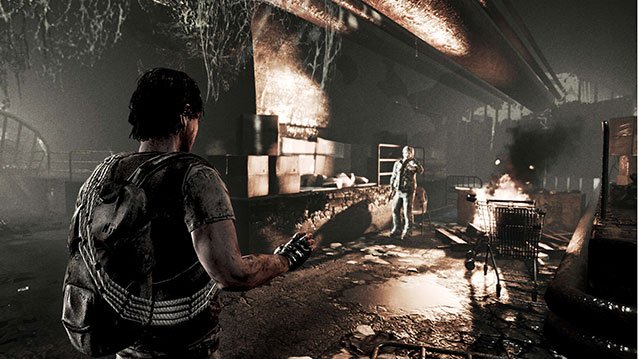
Unfortunately for both of us, I just didn’t have the provisions she needed. I had stumbled across a couple of tins up to this point. Hell, I had one just a few moments before but had to use it after the last fight didn’t go quite to plan. Desperate to tick a box, I scouted the immediate area short of heading into my mission marker; all I found were supplies irrelevant to the lady’s predicament. Remembering that with the previous survivor I was able to leave him and come back following a story mission, I figured the game would give me what I needed later on and I would get another opportunity to help her. I gave up looking and carried on.
An hour or so later into the game and with Mei safe, I was tasked with rescuing her mother, Linda, from a nearby hotel. A group of scumbags were apparently snatching women from the street for their sick pleasure and she was likely taken there. After breaking in and successfully killing most of the immoral gang, the shaken mother and I escaped into the relative safety of the subway. Sure enough, we ended up on the same underground path through which I brought Mei. The main character actually mentions this to help reassure Linda that her daughter is safe and that he took good care of her.
As we came to the sewer entrance again, this time packing the two tins of food required, I walked up to our beggar’s makeshift room almost smug at how I’d correctly called that I’d be passing through again. Only rather than the grateful face I’d expected, I found her corpse dangling lifelessly from the ceiling. She chose to hang herself. There was no comment from the protagonist or Linda at this point, nor was it really required; the dead girl’s body presented so coldly told the full, depressing story.
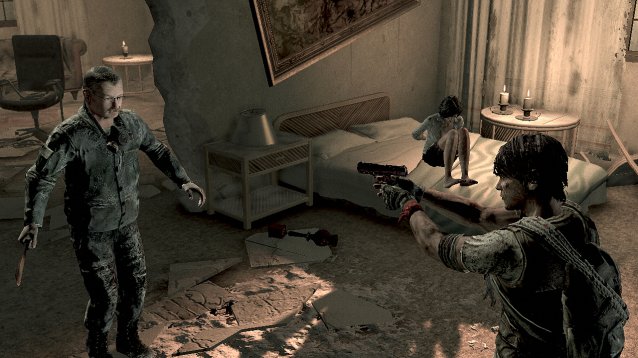
I’m not usually one to get stuck on the deaths of inconsequential characters, but I have to admit I struggled with this one for a moment. What could I have done differently? Could I have been more careful with my rations? Of course I could have. I could have handled a couple of the fights better, not needed to use them. Did I even really need to use them at all anyway? I mean, if you fuck up a confrontation, chances are you’ll perish anyway, right?
Was this my fault?
I felt it was. The last time I saw her, the girl needed food and she had kept the smallest sliver of hope alive, but it seemed that because I wasn’t able to help her, she gave up and took her own life.
Seemed.
It was actually kind of a lie.
Granted, it was a lie I’d partly convinced myself of, I believed it was my lack of foresight that cost this character her virtual existence. As I discovered later, though, the girl hangs herself whether you helped her or not.
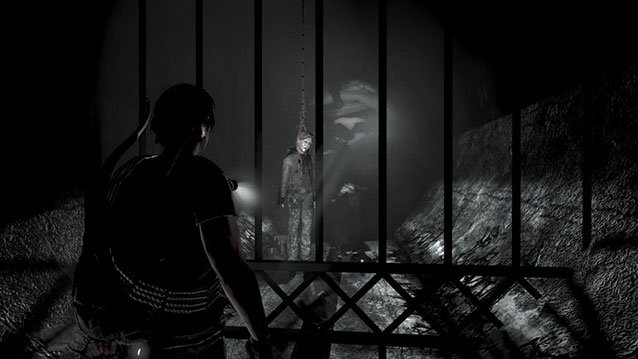
I had thought originally that it was meant as an impressive and powerful show of consequence due to my poor, erstwhile decisions and thus my punishment for not being able to act when she needed me to. In reality, it wasn’t anything but a predetermined event, irrelevant of my actions and one I now cynically presume was steered that way so that she didn’t require any additional lines when you passed on by the second time.
This realisation instantly sapped away any power that the image of her lifeless frame had, along with it the impression of consequence I had when it came to helping my fellow man throughout. What was presented as just one of many meaningful choices throughout was now reduced to a cold, sterile mechanic in which you could swap some available supplies for an extra life if you felt like it. This character, which just a short while prior was pleading with me for food, could quite easily have been a vending machine all along.
It was, ultimately, painfully at odds with every way in which the game had carried itself throughout; at odds with all the desperate sobbing, the heartfelt pleas of the destitute, and at odds with the guilty, apologetic walks away when my hands were tied. With this, my remaining emotional connection to the game vanished, and every action I’d taken to help someone throughout became disappointingly hollow in retrospect.

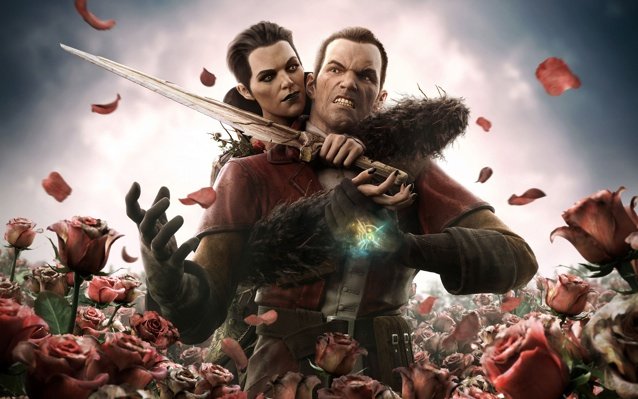
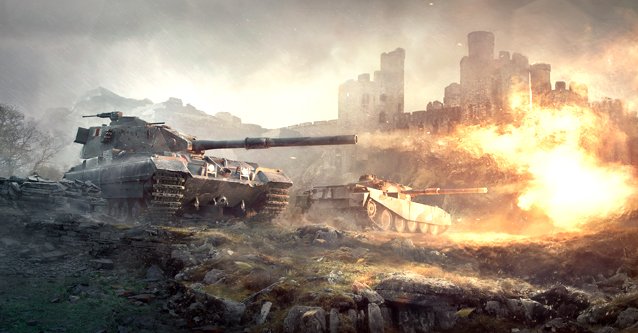
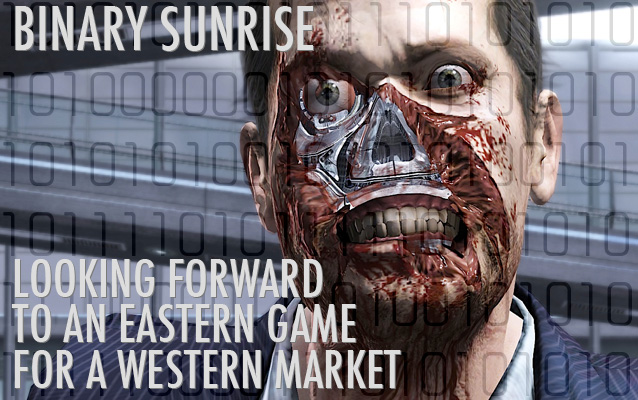
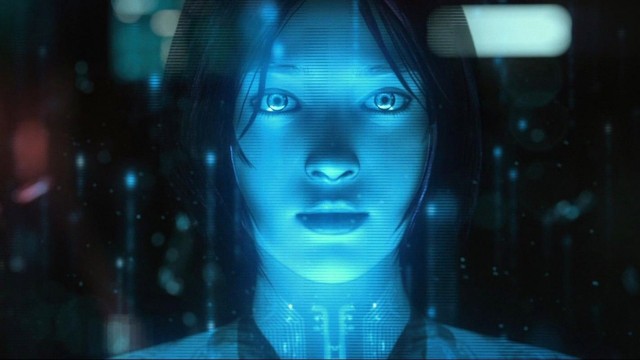 Mission 15 - Guardians: Halo 5 Guardians Walkthrough
Mission 15 - Guardians: Halo 5 Guardians Walkthrough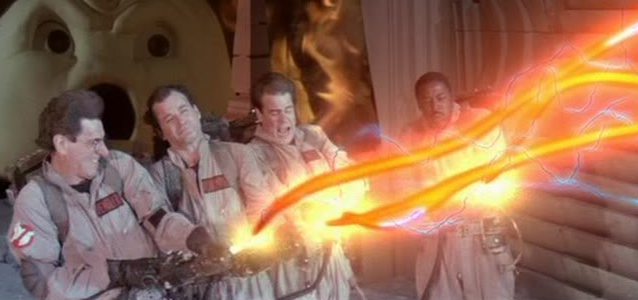 “It Would Be Bad.” Always Online and the Next Generation of Consoles
“It Would Be Bad.” Always Online and the Next Generation of Consoles Five Things to Look Forward to in Volume
Five Things to Look Forward to in Volume Magic Duels: Origins (iPhone) review
Magic Duels: Origins (iPhone) review Major League Gaming App Comes To Xbox 360 With Live eSports Viewing
Major League Gaming App Comes To Xbox 360 With Live eSports Viewing